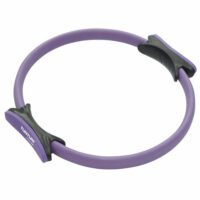Joint Pain Relief

Joint Pain Relief: Causes, Solutions, and New Research
Why Does Joint Pain Occur?
Joint pain is a widespread issue that can affect anyone, regardless of age or activity level. The pain may arise from injuries, overuse, or chronic conditions such as arthritis. In many cases, the pain is due to inflammation in the joints, wear and tear on cartilage, or damage to ligaments. These issues can make everyday tasks, such as walking or gripping objects, incredibly painful. It’s important to understand that joint pain isn’t just a symptom—it’s a signal from your body that something is wrong, and addressing it early can prevent further complications.
How Can Joint Pain Be Managed?
Managing joint pain requires a comprehensive approach. Physiotherapy plays a critical role in relieving pain and restoring function. A physiotherapist will assess your specific condition and create a customised treatment plan. This might include manual therapy to reduce stiffness, exercises to strengthen muscles around the joint, and advice on posture and movement to prevent further strain.
In some cases, supportive devices like braces or orthotics may be recommended. Additionally, lifestyle changes, such as maintaining a healthy weight and staying active, are crucial in managing joint pain effectively. Physiotherapists can also work in conjunction with your GP to discuss the need for medications or further medical interventions if necessary.
Read more on how physiotherapy can help manage arthritic joint pain.
What Can You Do to Prevent Joint Pain?
Prevention is the best cure, especially when it comes to joint pain. Regular exercise, focusing on low-impact activities, can keep your joints healthy. Strengthening the muscles around your joints helps distribute the load more evenly, reducing the stress on your joints themselves. Good posture and ergonomic practices, whether you’re sitting at a desk or lifting heavy objects, are essential in preventing joint injuries.
It’s also important to pay attention to your body’s signals. If you experience pain, don’t ignore it—addressing the issue early can prevent long-term damage. Consulting a physiotherapist early on can provide you with strategies to protect your joints and maintain your mobility.
Read more on tips to prevent joint pain.
What Should You Do?
Experiencing joint pain can be debilitating, but it doesn’t have to control your life. Seeking professional advice from a physiotherapist is the first step toward effective relief. Physiotherapists are equipped with the knowledge and tools to assess your condition, provide pain relief, and guide you through exercises that can restore your joint function. The sooner you take action, the better your chances of reducing pain and preventing further joint issues.
Rochedale - Call 38410277
Book Online: RochedaleSalisbury - Call 32751044
Book Online: SalisburySandgate - Call 32691122
Book Online: SandgateJoint Pain FAQs
- Why do my joints hurt?
Joint pain can occur due to various reasons, including injuries, arthritis, or repetitive strain. Inflammation, cartilage wear, or ligament damage often causes discomfort, making movement painful. - How can I relieve joint pain naturally?
Natural remedies for joint pain include regular exercise, a balanced diet, and maintaining a healthy weight. Physiotherapy also offers natural relief through tailored exercises and manual therapy. - What is the best exercise for joint pain?
Low-impact exercises such as swimming, cycling, and walking are great for joint pain. These activities strengthen muscles without putting too much strain on your joints. - When should I see a physiotherapist for joint pain?
If joint pain persists for more than a few days or significantly impacts your daily activities, it’s time to consult a physiotherapist. Early intervention can prevent further damage. - Can diet help with joint pain relief?
Yes, an anti-inflammatory diet rich in fruits, vegetables, whole grains, and omega-3 fatty acids can help reduce joint pain. Avoiding processed foods and sugars can also be beneficial. - What treatments do physiotherapists offer for joint pain?
Physiotherapists offer a range of treatments, including manual therapy, exercises, and education on joint protection techniques. These approaches aim to reduce pain and improve mobility.Read more on physiotherapy treatments for joint pain.
Related Articles
- Arthritis Pain Relief – Discusses various strategies for managing arthritis pain, including physiotherapy and lifestyle changes.
- Knee Pain: Causes and Treatment – Explains common causes of knee pain and effective physiotherapy treatments.
- Shoulder Pain Relief – Offers insights into relieving shoulder pain through targeted physiotherapy exercises.
- Hip Pain Management – Details how physiotherapy can help manage and alleviate hip pain.
- Low Back Pain Relief – Discusses the role of physiotherapy in treating and preventing lower back pain.
- Tendinopathy Treatment – Explains how physiotherapy can help treat tendonitis and prevent recurrence.
- Exercise Tips for Joint Health – Provides tips on maintaining joint health through regular exercise.
- Posture and Joint Health – Discusses the impact of posture on joint health and how to improve it.
- Sciatica Pain Relief – Offers strategies for managing sciatica pain through physiotherapy.
- Sports Injuries and Joint Pain – Covers common sports injuries that affect joints and how physiotherapy can help.
- Joint Pain and Exercise: What You Need to Know – Discusses the relationship between exercise and joint pain, providing tips on staying active while managing pain.
- Diet and Joint Pain: The Connection – Harvard Health – Explains how diet can influence joint pain and suggests foods that may help.
- New Research on Joint Pain Relief – Mayo Clinic – Covers the latest research on joint pain treatments and emerging therapies.
Social Media – Follow Us for Free Tips
For more tips on managing joint pain, follow us on our social media platforms. You’ll find helpful advice, exercises, and updates on the latest in physiotherapy.
















































































